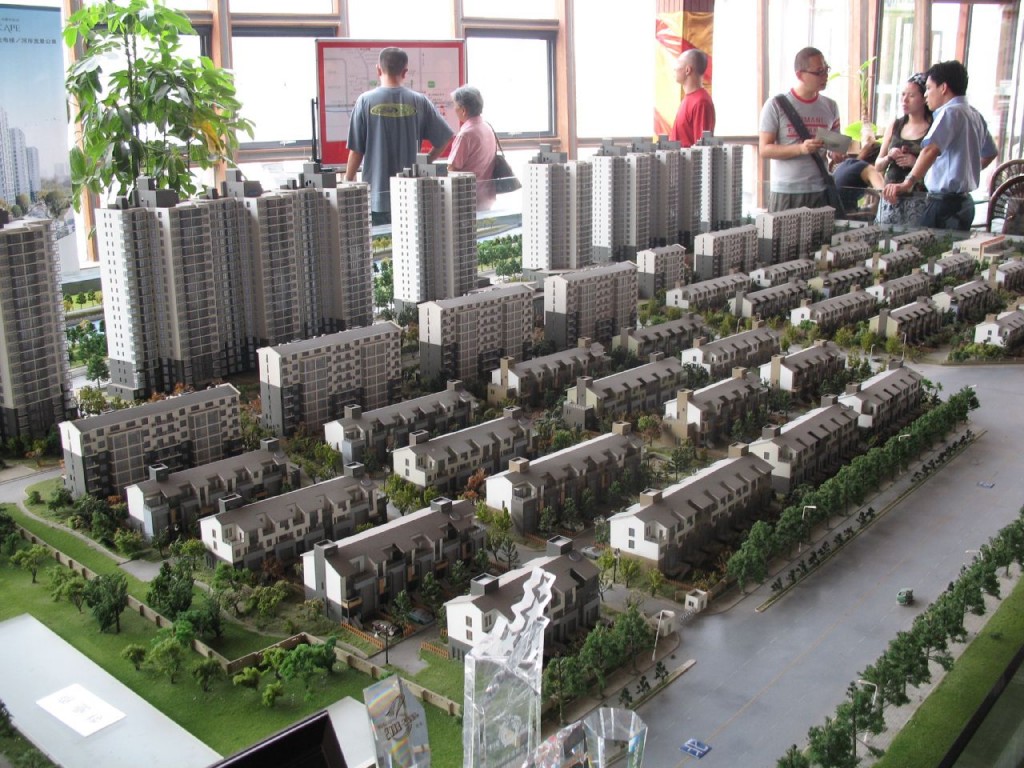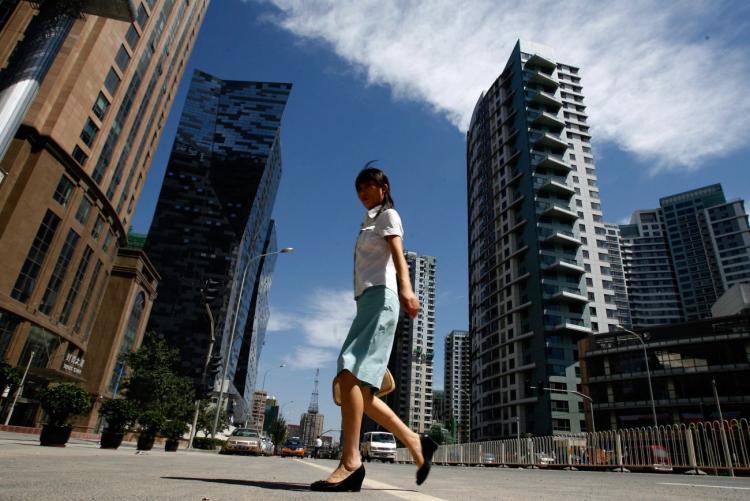A survey about China’s real state market between 2012 and 2013, in collaboration with the Scout Real Estate Agency in Beijing for Daxue China Market Research Shanghai.
China benefits from the whole Asia’s economic situation
Since 2012, the slowing down of western economies has had a significant impact on Asian economies, first of all on China’s economy. Growth has been slower compared with the previous years, but still there was an economic growth.
Uninterrupted growth in China
A figure alone sums up the importance of Chinese real estate market. In 2012, 985 million square meters of residential real estate have been sold in China, which is 2 % more than in 2011. Following the current trend, a similar growth rate should be measured at the end of 2013. A worrisome figure: construction land sales have slightly diminished, in spite of important transaction made by the Chinese authorities that want to add affordable residential estate on the market.
After some concern in 2012 regarding residential real estate investment, the situation seems to be a little more unconstrained, and optimism is back. The government goes on implementing measures to prevent a real estate bubble that would endanger the economy, but the residential real estate market is still growing.
Office market: wait-and-see attitude in China
Large international companies have been more cautious for a few months, and are still waiting to have a clear understanding of the region’s economic trend before they resume their expansion plans in China. The Office real estate market has been dynamic, essentially thanks to Chinese companies.
In Beijing, there is a clear shortage with a 3.8 % vacancy rate, the lowest in China. Things are quite different in other cities, for example in Guangzhou where many projects have been put on the market at the same time and a 12.5 % vacancy rate.
Whatever the situation is, the 2009-2011 decrease is clearly over, and the office prices are clearly rising again in all China’s large cities.
Retail market: mirror of the developing domestic market
In 2012, interior demand has amounted to 40 % of the Chinese GDP, and its share should steadily increase in the incoming years with more foreign brands settling themselves in China.
In China’s eastern large cities such as Shanghai, Guangdong and Shenzhen, there is between 5 and 6 million square meters of retail surface, Beijing being an exception with 7.8 millions square meters. The figures are quickly diminishing in other Chinese cities, even large ones such as Tianjin, Chengdu and Hangzhou that have only between 2 and 3 million square meters of retail space. Some cities have nevertheless huge potentials such as Hangzhou that has the lowest vacancy rate among China’s large cities that all have vacancy rates under 10 %.
Residential real estate: towards stabilization ?
Three Chinese large cities, Beijing, Shanghai and Guangzhou have known growth rates among world highest during the past decades. However, the Chinese authorities have adopted measures to calm down this frenzy and this seems to have had actual impact. In these cities, the prices have doubled between 2006 and 2011, but this rise has now been slowed down and, in 2011, there was a short period of decrease of the prices (2%). In 2012 and 2013, the price are rising again, but more reasonably, with maybe some possibilities for households with average income to be able to find their apartment in one of China’s large cities.
China’s large cities have very different prices, for example the average price for one square meter in Shanghai is around $ 3.300 per square meter, while this price is only $ 1.300 in Chengdu.
Real Estate debt market
Interest rates have increased in China and it is more difficult for real estate investors to find affordable funding. This has had a string effect on the number of projects and the prices. This has led to the development of new ways of funding in continental China, such as real estate trust products and offshore bond issuances. Chinese authorities had to intervene to regulate the interest rates on this new market, but so far offshore bond insurances in Hong Kong have had a large success, and are now a favored way of funding real estate in continental China.







